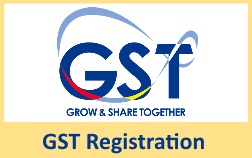How to Find the Best GST Registration Services in Singapore Swiftly
How to Find the Best GST Registration Services in Singapore Swiftly
Blog Article
Throughout: The Ultimate Roadmap to GST Enrollment for Companies Seeking Financial Security
Browsing the intricacies of Item and Solutions Tax (GST) enrollment is a crucial action for companies striving for financial security. Damaging down the roadmap right into convenient actions can simplify the enrollment trip for services looking to improve their financial standing.
Understanding GST Fundamentals
Digging into the essential concepts of Goods and Services Tax Obligation (GST) is essential for obtaining an extensive understanding of its ramifications on companies and the economic situation. Input Tax Credit Rating (ITC) is a significant feature of GST, enabling services to declare credit history for taxes paid on inputs, lowering the general tax burden. Understanding the essentials of GST is important for companies to conform with tax regulations, manage their finances efficiently, and contribute to the country's financial development by taking part in a transparent tax system.
Eligibility Standards for Registration
To register for GST, services must fulfill specific qualification standards established by the government. The primary qualification demand is that any business associated with the supply of items or solutions with a yearly aggregate turn over over the threshold limitation set by the authorities need to sign up for GST. As of the current laws, the threshold restriction for GST registration is an annual aggregate turn over of 40 lakhs for services running within a state, besides special category states where the limit is 20 lakhs. In addition, particular businesses are required to sign up for GST irrespective of their turnover, such as interstate suppliers, casual taxed persons, and businesses reliant pay tax obligation under the reverse fee mechanism. It is crucial for companies to completely examine their turn over and transaction kinds to identify their GST enrollment commitments accurately. Failing to register for GST when eligible can lead to fines and lawful consequences, making it important for businesses to follow the specified eligibility standards.
Documents Required for Enrollment
Having actually fulfilled the qualification requirements for GST enrollment, organizations must currently guarantee they have the requisite papers in area to proceed with the registration process successfully. The records needed for GST enrollment normally include proof of service constitution, such as collaboration act, enrollment certificate, or unification certification for various types of organizations. Furthermore, companies need to supply documents establishing the major location of business, such as a rental arrangement or electrical power expense.
Step-by-Step Registration Refine
Commencing the GST enrollment process includes a collection of structured steps to make sure a compliant and smooth registration for organizations. The initial step is to see the GST site and submit the enrollment type with precise details of the company entity. Following this, the applicant receives a Short-lived Reference Number (TRN) which is used to return to the application procedure if it's not finished in one go.
Next, all needed documents according to the list provided by the GST portal requirement to be uploaded. These records typically include evidence of service identification, enrollment and address evidence of marketers, monetary declarations, click to investigate and company entity's frying pan card.

Post-Registration Compliance Standards

Verdict
Finally, organizations seeking financial security should understand the fundamentals of GST, meet eligibility criteria, gather essential documents, comply with the step-by-step enrollment procedure, and follow post-registration standards - Best GST registration services in Singapore. By adhering to these actions, services can make article sure compliance with tax obligation laws and preserve monetary security over time
Additionally, specific organizations are needed to register for GST regardless of their turn over, such as interstate vendors, casual taxable persons, and businesses accountable to pay tax under the reverse cost mechanism.Having fulfilled the qualification requirements for GST enrollment, services must now click here for more info ensure they have the requisite files in location to continue with the enrollment process effectively. The files needed for GST registration usually consist of evidence of organization constitution, such as collaboration deed, enrollment certificate, or unification certificate for various kinds of organizations. Additionally, services require to supply files developing the principal location of company, such as a rental arrangement or electrical energy bill.Beginning the GST enrollment process includes a collection of structured actions to make certain a compliant and seamless registration for organizations.
Report this page